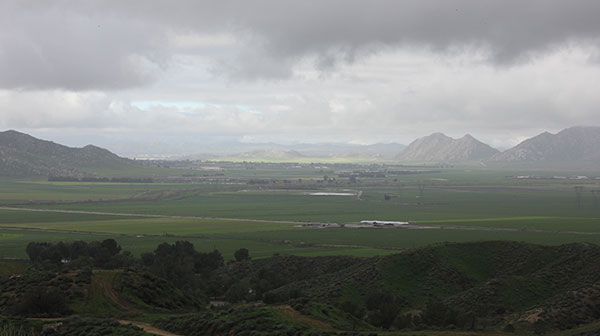MSSC Charter & Mission Statement
Memorandum of Understanding
December 9, 2005
Whereas the Multi-State Salinity Coalition (MSSC) was established in 2001 by local and regional water agencies to advance the common interests of the member agencies in the development of local and regional projects and programs associated with desalination and salinity management technologies, practices, funding, and implementation. And,
Whereas the members of the MSSC have effectively fostered communication and dialogue on related desalination and salinity management-related policy matters through quarterly meetings, correspondence, and the development, sponsorship and presentation of an annual national desalination and salinity management summit for local, regional, and national leaders. And,
Whereas the MSSC believes that collaborative efforts among water providers, state agencies, federal agencies, research organizations, congressional leaders and private industry are essential in pursuit of common interests; And,
Whereas the MSSC revised the following mission statement in 2014:
“To promote advancements in technologies for desalination and reuse, salinity control strategies, water/energy efficiencies and related public policies that will assist communities in meeting their water needs.”
How we achieve our mission:
The Coalition will achieve our mission by fostering communication, dialogue and recommendations on related desalination and salinity management, water/energy nexus issues and policies through quarterly meetings, correspondence, position papers, project/program endorsements and the development, sponsorship and presentation of an annual national desalination and salinity management summit for local, regional, and national leaders. The Coalition believes that collaborative efforts among water purveyors, state agencies, federal agencies, research organizations, congressional leaders and private industry are essential in pursuit of common Coalition interests as stated in its Articles of Incorporation.
The Coalition is not, nor is it intended to be, a substitute for local government. It is, however, an organization through which its individual members can work on salinity management, desalination and sustainability issues and coordinate their efforts.
Our Goal:
“We work to achieve our mission and vision through fostering collaboration on the policy and technology of desalination and salinity management through communication, quarterly meetings, and an annual national salinity summit.”
Our Vision:
“Creating reliable water from alternative sources”
And, whereas the MSSC has determined that it is in its best interest to formalize a set of guidelines regarding MSSC governance so that the MSSC may maintain and enhance its effectiveness regarding the implementation of its Mission Statement and related projects, programs, and activities. And,
Whereas the MSSC has agreed that these guidelines are hereby memorialized in a Memorandum of Understanding that would be executed by the MSSC members,
Now therefore, the MSSC agrees that the following governance findings and guidelines shall be used in the development and implementation and/or execution of MSSC projects, programs, and activities:
- MSSC Membership. MSSC members shall be from or represent local and regional public water districts, agencies, and entities, such as associations, consultants and universities that distribute and/or facilitate treat water, reclaimed water or wastewater.
- MSSC Member Responsibilities. To the extent possible, MSSC members shall participate actively in MSSC meetings, projects, programs, and activities, and they shall support or facilitate MSSC meetings when possible.
- MSSC Chairperson. MSSC members shall elect a chairperson for the MSSC on an annual basis. MSSC Chairpersons shall be responsible for leading, facilitating, and organizing MSSC meetings, discussions, recommendations and/or actions.
- Voting. Each MSSC member shall only be allowed one vote per recommendation, endorsement, and or action regardless of the number of entity representatives attending the meeting. Additionally, MSSC members may vote in person, by phone, or proxy so long as the vote is made known to the MSSC Chairperson or their designee.
- Approval, Authorization, Recommendations, and Endorsement. All MSSC actions, recommendations, approvals, authorizations, and endorsements shall require a unanimous vote by the MSSC members present for a duly advertised meeting for which an agenda has been distributed.
- Current MSSC Members. The current MSSC members can be viewed here.
- New MSSC Members. The MSSC members agree that only public, local, and regional water districts, water utilities, agencies, and entities (described in Article 1) shall be eligible for MSSC membership, and be allowed to vote on MSSC projects, programs, and activities. Agencies that wish to join the MSSC shall only be approved by the unanimous vote of the current MSSC members.
- Meetings. The MSSC shall meet on a quarterly basis, or when deemed necessary by the MSSC members.
- Member Fees. The MSSC shall not require any fee of its members.
- MSSC Guideline Changes. Any changes to MSSC Guidelines shall be unanimous in accordance with Article 5 above.
Mission, Vision, and Goal

Our Mission:
To promote advancements in technologies for desalination and reuse, salinity control strategies, water/energy efficiencies and related public policies that will assist communities in meeting their water needs.
Our Vision:
Creating reliable water from alternative sources.
Our Goal:
We work to achieve our mission and vision through fostering collaboration on the policy and technology of desalination and salinity management through communication, quarterly meetings, and an annual national salinity summit.
